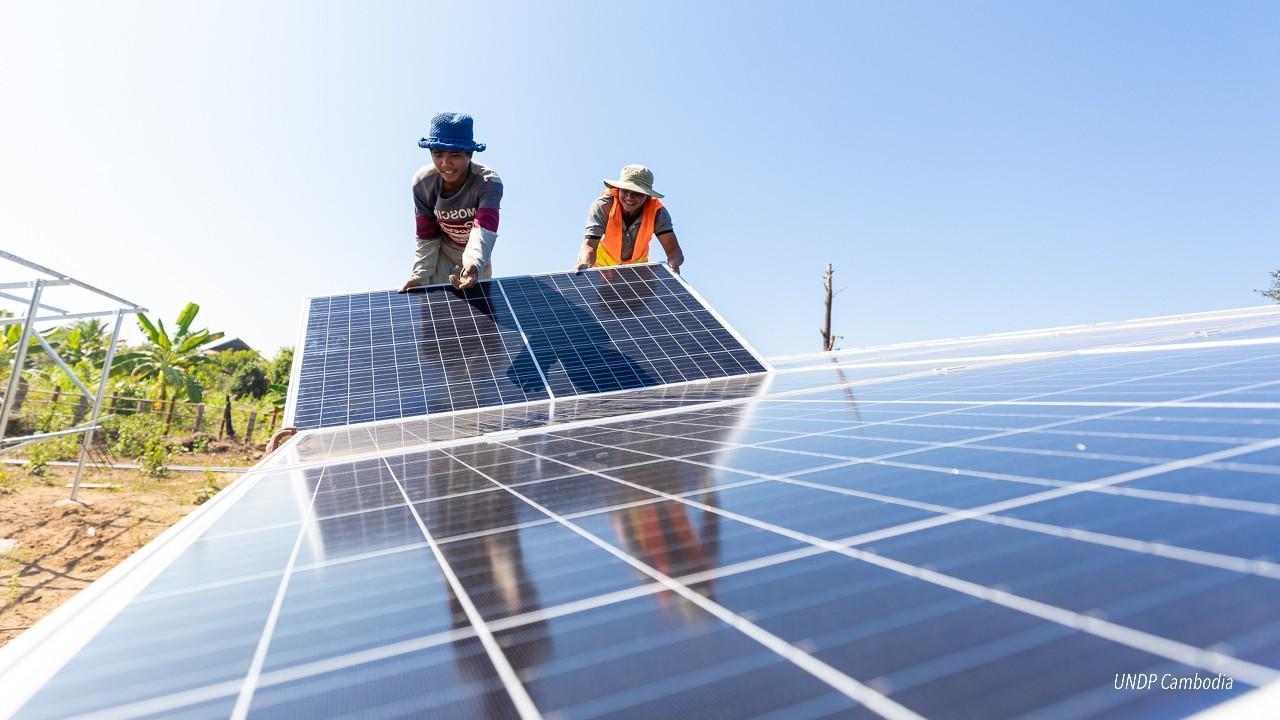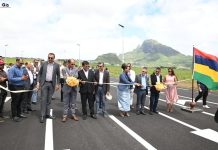Africa-Press – Mauritius. Universal energy access in Africa is critical to reduce poverty, enhance productivity, and build resilience against climate change. Oluleke O. Babayomi describes how AI can accelerate energy access through improved efficiency, financial innovations, and optimised production and consumption.
Universal energy access is a cornerstone of sustainable development. It is central to improving living standards, fostering economic growth, and enhancing educational opportunities. Without it, all of these become more difficult or impossible. The United Nations’ Sustainable Development Goal 7, aims to ensure access to affordable, reliable, sustainable, energy for all by 2030. Achieving this goal is particularly vital for Africa, a continent where energy poverty remains a significant barrier to development. In Africa, over 600 million people still live without electricity, and many rely on harmful and inefficient sources of energy such as kerosene and biomass. This lack of access not only impedes economic progress but also exacerbates health issues and contributes to environmental degradation.
Progress across the regions
In West Africa, Ghana and Senegal have made strides in increasing electricity access. In Ghana, access to electricity has reached approximately 85 per cent of the population. However, other countries such as Niger still face significant challenges, with less than 20 per cent of its population having access to electricity.
In East Africa, Kenya is a leader in renewable energy, with over 70 per cent of its energy mix coming from renewables, and the country’s electricity access rate has risen to around 75 per cent. In contrast, its regional neighbour, Burundi, has a dismal electricity access rate of less than 11 per cent.
Southern Africa countries too, have a wide disparity of energy access: South Africa boasts a relatively high electrification rate of about 89 per cent. However, neighbouring countries like Mozambique and Malawi still face low access rates, with around 30 per cent and 11 per cent of the population, respectively, having reliable electricity access. These regional disparities highlight the diverse challenges and progress within the continent. While some countries are leading the way in energy access, others continue to struggle with significant barriers to achieving universal energy access.
Despite the progress, Africa faces a plethora of challenges in achieving universal energy access. The continent’s energy infrastructure is often outdated and inadequate, failing to meet the growing demand. Political instability, financial constraints, and lack of technical expertise further hinder the expansion of energy services. Additionally, there is a significant urban-rural divide, with rural areas being particularly underserved while urban areas experience frequent blackouts.
AI and energy access
Artificial Intelligence (AI) has the potential to significantly transform energy access in Africa by improving equitable energy access, fostering innovation, and optimising energy production and consumption.
AI can facilitate the design and implementation of energy access that is affordable and equitable. By analysing socio-economic data, AI can identify underserved communities and tailor energy solutions to their specific needs. For instance, Atlas AI, in partnership with Engie Energy Access, uses machine learning to map energy poverty and prioritize areas for energy infrastructure investments. This collaboration leverages satellite imagery and AI-driven socio-economic modelling to identify regions where energy access can have the most significant impact: specific high-density areas with unreliable grid access and identifying potential customers who have the income to repay consistently. This data-driven approach has reduced deployment costs and led to a 48 per cent increase in sales of solar home systems.
AI can be used to evaluate the risks and returns of renewable energy projects in underserved areas, making it easier for investors to identify viable projects. This can lead to increased investment in regions that are traditionally considered too risky for energy projects. Nithio, an Africa-focused fintech, uses AI to increase access to finance for universal energy access and climate resilience in Africa. By utilising geospatial data, consumer repayment data, and financial modelling to standardise credit risk, Nithio’s AI platform facilitates affordable financing for energy projects that serve low-income communities. This approach has expanded energy access by making solar power more affordable and accessible to those who cannot afford upfront costs.
Businesses and governments can use AI to make data-driven decisions that affect millions of people. AI platforms can analyse vast amounts of data to identify market opportunities, optimise operations, and enhance customer engagement. AI can simulate the impacts of different energy policies, helping policymakers to understand the potential outcomes and refine their strategies accordingly. This ensures that policies are equitable and effectively address the energy needs of underserved communities.
AI can enhance the efficiencies of both energy systems and related financing mechanisms. Losses in distribution networks can be reduced by predicting energy demand and managing supply. For instance, AI algorithms can forecast solar and wind energy production, enabling better integration of renewable sources into the grid. In Kenya, companies like M-KOPA have utilised AI for the deployment of solar home systems. M-KOPA uses predictive analytics to analyse data on customers to determine their credit rating, determining their debt limit and the optimal repayment schedule for SHS loans.
Challenges
Despite the potential of AI to transform energy access, Africa faces several challenges in harnessing its benefits fully. One significant hurdle is the poor state of energy infrastructure, which limits the deployment of advanced AI technologies. Many regions also lack reliable internet access, a critical component for AI systems that rely on cloud-based services and real-time data transmission.
The lack of representative data from local off-grid mini-grids hampers the development of inclusive AI models tailored to the unique needs of African communities. Without high-quality data, AI algorithms cannot accurately predict energy demand or identify the most effective solutions for expanding access. There is also a shortage of skilled professionals in AI and energy sectors in Africa, exacerbating the challenge of developing and deploying AI-driven solutions. If Africa is to truly benefit from the potential of AI these shortcomings will need to be addressed.
Universal energy access is not just an aspirational goal but a necessity for sustainable development in Africa. While significant progress has been made, substantial challenges remain in ensuring that every African has access to reliable and affordable energy. Artificial Intelligence offers transformative potential to overcome these challenges. Case studies demonstrate how AI is already making a difference by mapping energy needs and facilitating financing for energy projects. However, there is still more to be done for Africa to reach its goal of universal energy access, but AI can help.
LSE
For More News And Analysis About Mauritius Follow Africa-Press







